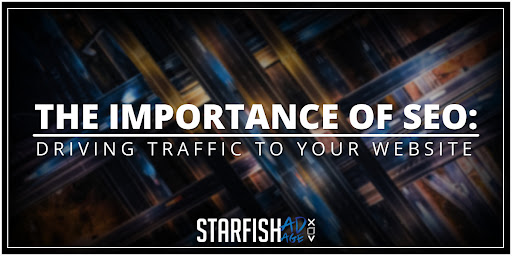
How to Use LinkedIn’s New Video Feed
Use LinkedIn’s new video feed to grow your audience. Learn specs, best practices, and tips for creating engaging posts to boost your visibility on LinkedIn.

In the digital age, having an online presence is crucial for businesses and individuals alike. Whether you’re running an e-commerce store, a personal blog, or a corporate website, the success of your online venture often hinges on your website’s visibility in search engine results. This is where SEO, or Search Engine Optimization, comes into play.
The ultimate goal is to attract more organic traffic, which refers to visitors who find your website through unpaid search results rather than paid advertisements.
When you perform a search on a search engine like Google, you’re likely to click on one of the top results displayed on the first page. In fact, studies show that over a quarter of all clicks go to the first result, and the click-through rate decreases significantly for lower-ranking pages.
This highlights the importance of ranking high in search results. By optimizing your website for search engines, you increase the likelihood of appearing on the first page, driving more organic traffic to your site.
While paid advertising and social media campaigns can be effective in driving traffic to your website, organic traffic offers several distinct advantages. First and foremost, organic visitors tend to be highly targeted, as they actively search for specific keywords or phrases related to your industry or offerings.
Moreover, organic traffic represents a cost-effective marketing strategy. Unlike paid advertising, which requires ongoing investment, optimizing your website for search engines can generate long-term results. Once your website achieves a good ranking, you can continue to attract organic traffic without incurring additional expenses. This makes SEO a sustainable and profitable approach to driving traffic and acquiring customers.
When users discover your website through organic search, it’s often an indication of their intent to engage with businesses or services in your field. While they may not convert into customers immediately, the fact that they have actively sought out information or solutions related to your industry makes them valuable prospects.
This fosters trust and credibility among your target audience, increasing the likelihood that they will return to your website and eventually convert into paying customers.
To harness the power of SEO and drive organic traffic to your website, it’s essential to understand the key elements of effective optimization. Here are a few fundamental aspects to consider:
Keywords form the foundation of SEO. Through comprehensive keyword research, you can identify the terms and phrases your target audience is using to search for products or services in your industry. By strategically incorporating these keywords into your website’s content, meta tags, headings, and URLs, you can improve your website’s relevance and visibility in search results.
Content plays a pivotal role in SEO. By creating high-quality, informative, and engaging content, you can attract and retain visitors while also signaling to search engines that your website is valuable and relevant. Regularly updating your website with fresh content also encourages search engines to crawl and index your pages more frequently, improving your overall visibility.
On-page optimization refers to optimizing individual web pages to improve their search engine rankings. This includes optimizing meta tags, headers, URLs, image alt tags, and ensuring your website has a clear and organized structure. By adhering to on-page optimization best practices, you can enhance the user experience and make it easier for search engines to understand and index your website.
Technical SEO focuses on optimizing the technical aspects of your website to improve its performance and crawlability. This includes optimizing website speed, mobile-friendliness, ensuring proper website indexing, using structured data markup, and implementing XML sitemaps. Technical SEO ensures that search engines can easily navigate and understand your website, improving its chances of ranking higher in search results.
SEO is a powerful tool for driving organic traffic to your website, attracting high-intent customers, and establishing your online presence.
Remember to conduct thorough keyword research, create high-quality content, optimize your pages, and ensure your website is technically optimized. By following these best practices, you can harness the full potential of SEO and enjoy long-term success in the digital landscape.

Use LinkedIn’s new video feed to grow your audience. Learn specs, best practices, and tips for creating engaging posts to boost your visibility on LinkedIn.

How major social media legal battles in 2024, including Supreme Court rulings and the Kids Online Safety Act, are impacting businesses and digital marketing.

Discover 10 iconic brands like Blockbuster, Kodak, and Toys “R” Us that went extinct because they failed to innovate.

Gen Z Marketing That’s Breaking The Internet: Discover how Gen Z marketers use bold, unpredictable strategies to capture attention.

Learn how AI tools improve customer experience, streamline operations, optimize marketing, and reduce operational costs.
All Rights Reserved | Starfish Ad Age LLC | 2023 | Privacy Policy